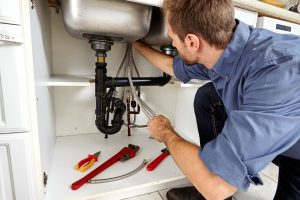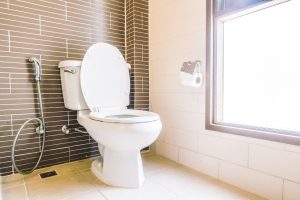Table of Contents
It’s true that plumbing is a basic necessity in any home or place of business. If you’re building a new house or commercial structure, having a plumbing service is one of the most important things.
What is Plumbing?
Plumbing is a system of pipes or conduits used to carry water from its source to the desired destination. Heating and cooling fluids can help regulate the temperature in a house or building, making it more comfortable for occupants.
The concept of plumbing came from the influence of Rome and was derived from the Latin word plumbum, which means lead. In those ancient years, lead was used mainly for water supply systems because of its flexibility in any shape. However, at present, materials such as metal, steel, and plastic are often used in production.
The Importance of Plumbing
Good plumbing is paramount for public health and sanitation. It provides clean water, an essential for life, while efficiently removing waste. Efficient plumbing can also help conserve water, a precious resource. A poorly functioning plumbing system can lead to issues like contaminated drinking water and inadequate waste disposal, posing severe health risks.
Components of a Plumbing System
A typical plumbing system comprises two subsystems: the water supply and drainage systems.
Water Supply System – This subsystem brings fresh water from the municipal supply or a well. The water enters under pressure, allowing it to travel upwards and around bends, reaching all house corners. The water supply system also caters to fire sprinklers and outdoor faucets.
Drainage System – Also known as the DWV (Drain-Waste-Vent) system, this plumbing part removes wastewater and sewage from the house. The system uses gravity, guiding waste and water downwards through several pipes. Vent pipes allow sewer gases to escape to the house’s exterior, preventing a buildup of harmful gases.
Together, these subsystems form the backbone of a building’s plumbing system, efficiently managing water flow and waste removal to ensure occupants’ clean, safe, and comfortable environment.
Common Plumbing Issues
Common plumbing problems in households vary in severity but often disrupt daily routines and can lead to costly repairs if not promptly addressed. Some common issues include leaky faucets, which wastewater due to worn-out washers or O-rings, and clogged drains in sinks, showers, and bathtubs, typically caused by hair, soap residue, food particles, or debris.
Running toilets, often resulting from a faulty flapper or fill valve, can increase water bills. Low water pressure can be due to factors such as mineral buildup, closed shut-off valves, or leaks in the plumbing system. Leaky pipes, often caused by corrosion, cracks, or loose joints, can damage walls, floors, and ceilings. In colder climates, frozen pipes may burst and cause water damage when thaw, necessitating proper insulation.
Water heater problems, such as a lack of hot water, inconsistent temperature, or leaks, can be caused by sediment buildup, faulty thermostats, or worn-out heating elements. Sewer line backups can lead to sewage backups and unpleasant odors, often caused by tree root intrusion, grease buildup, or foreign objects.
Moreover, backflow problems pose health risks when contaminated water flows into the main water supply due to a malfunctioning backflow preventer. Homes with septic systems may encounter issues like backups, odors, or the need for regular pumping.
Regular maintenance and inspections help prevent these common plumbing problems. A licenced plumber can help diagnose, repair, and maintain plumbing systems to ensure they operate efficiently and safely.
Different Types of Plumbing Services
Plumbing fixtures such as pipes, gutters, and other equipment are installed, repaired, and maintained to ensure their overall convenience. Here are a few areas to take note of:
- Water supply: A very common plumbing task that deals with water taps, pipes, and irrigation. Plumbers who specialise in water system installations (hot and cold water) are skilled at constructing, repairing, replacing, and maintaining the overall system.
- Drainage: Work that involves laying and securing stormwater that carries many pollutants and other debris. Installation of sewage pipes and treatment systems will not be a burden for plumbers focusing on drainage systems.
- Irrigation: Deals with valve devices that help control the flow of fluid from its source down to its end zone. It provides support to plants’ growth and usually benefits wide garden spaces.
- Gas fitting: Refers to anything that involves the use of pipes, flues and a control system to supply gas.
- Sanitary: One of the most essential objectives of plumbing is sanitation. This plumbing type involves installing sinks in the kitchen, bathroom, and laundry area. Toilet installation is also a common plumbing work that falls under this service.
Plumbers do all the work with a high degree of care and safety. Whether the purpose is directed at providing ample water supply or maintaining the sanitation within a building.
What Kind of Plumber Do You Need?
It’s not enough to know the answer to the question ‘what is plumbing?’. Getting yourself familiar with the different kinds of plumbers that you can hire is important. However, not all plumbers can initiate a specific plumbing work or address every issue that you may have.
- Water supply plumbers know the process of installation, maintenance and repairs when it comes to faucets, sinks and garden irrigation.
- Drainage plumbers are responsible for digging trenches to initiate the installation and check for possible underground repairs. They can analyse the issue and prepare any design procedure to identify a treatment strategy that helps in resolving the problem.
- Gas fitting plumbers have the knowledge and skills to perform installation tasks involving hot water system units and stoves. The job requires specialised knowledge due to the safety concerns associated with gas. If you need to install new gas connections or gas appliances, relying on licensed gas fitters is essential to ensure safe and efficient operation. These professionals undergo rigorous training to manage such installations, ensure safety regulation compliance, and optimise functionality.
- Sanitary plumbers specialise in sanitary fixture installation and repairs. Connecting waste pipes to the corresponding fixtures also describes their expertise.
HIREtrades is a one-stop online marketplace for connecting consumers and businesses, covering 200+ trades and serving all states across Australia. Visit our dedicated Plumbers page or Get A Quote by filling out our quick and easy form.
Related Plumbers Resources

Cost of Installing New Plumbing in Old Houses
Uncover average costs for plumbing installation in older homes. Learn what impacts pricing so you can budget and upgrade pipes properly.

How Much Does it Cost to Hire a Plumber?
Table of Contents How Much Does it Cost to Hire a Plumber? Hiring a plumber costs $80 to $135 per hour, varying by location and

How Much Does It Cost To Replace a Toilet?
Table of Contents The total cost to replace a toilet is determined by various factors from hardware to labour costs. A safe budget for a

